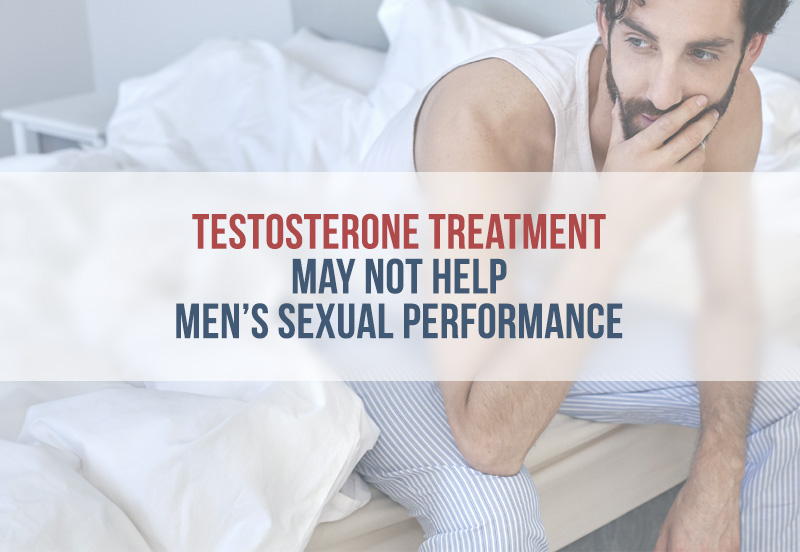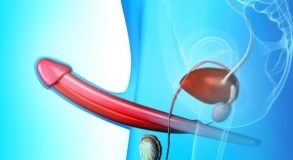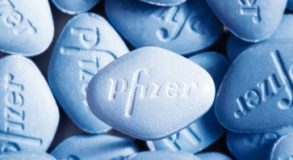If you have thought that testosterone gel is effective for ejaculatory dysfunction, then you will be disappointed. According to reports of Journal of Clinical Endocrinology, testosterone replacement does not lead to any significant improvement in an androgen-deficient male ejaculatory dysfunction. ED medications may help, however.
What is Ejaculatory Dysfunction?
Ejaculatory dysfunction is a delayed ejaculation or the inability of a man to ejaculate. 10% of men suffer from this disorder.
Testosterone is one of the important factors that lead to a man’s ability to ejaculate. It allows the central nervous system to function normally that result in ejaculation. The testosterone acts as a modulator. However, it is also one of the many hormones or neurotransmitters that cause normal ejaculation.
An ejaculatory dysfunction may often cause an embarrassment and relationship problems. However, it is a common thing that men can suffer from but fail to understand why.
Doctors from the Southern Illinois University advise to normale the testosterone levels.
Randomized Test
The subjects for the study were men who belonged to the age group starting from 26 or older. The men had testosterone levels less than 300ng/dL (on two separate occasions) and one or more symptoms related to ejaculatory dysfunction:
- Anejaculation;
- Decreased force or decreased volume
Step-by-Step Process
The men were given 60 mg 2% testosterone solution or placebo every day. The testosterone solution was applied to the axillae – the targeting testosterone ranging from 300 to 1050 ng/dL. After 4 weeks, the daily dose was titrated either down to 30 mg or up to 90 mg.
The total testosterone level, which was 274ng/dL, was derived from the 31 out of the 66 men who completed the trial. The testosterone level in case of placebo subjects was 18ng/dL.
The primary outcome, which was numerically greater for the testosterone group did not have much statistical significance in the difference.
There was no statistical difference between the placebo and the testosterone groups when it comes to assessing of the ejaculation frequency, the force, the perceived volume. Even with placebo, the measured ejaculation volume did not differ when compared with placebo or from baseline.
The frequency of ejaculation or the orgasmic function did not improve in either of the two through – the testosterone or the placebo. There was a similarity in the satisfaction score with both the groups. The average number of monthly sexual attempts both the testosterone and the placebo groups ranged from 6.8 to 7.6.
The differences in the treatment-emergent adverse events were not much significant. While there was an increase in Hematocrit in at least three of the patients belonging to the Testosterone group, the numbers were nil in case of the placebo group.
None of the groups showed any difference when it comes to subgroup analyses in terms of delayed ejaculation or anejaculation of men.

Testosterone Effect on Ejaculatory Delay
According to doctors, a testosterone treatment is often related to the ejaculatory function. Some believe that the treatment can lead to an improvement in the ejaculatory function. However, since this is a first of its kind randomized clinical trial, the results are far from being normalized or non-normalized.
It is also believed that the testosterone effect depends on multiple factors, which can be psychological. But there are a lot of methods to prevent erectile dysfunction in general and ejaculatory dysfunction in particular.
The lack of on the ejaculatory force and the volume seems to be surprising since the effect of both tends to decline with age (along with the testosterone levels).
However, the benefit of testosterone normalization can differ from person to person. The effect appears to be less likely in case of men having very tough skin or those who appear to be obese.
Failure of orgasm can affect both men and women the same way. Researchers hope that by sharing this information, they would achieve some amount of funding that could help do further research in this area so that they could treat men from this common and yet misunderstood condition. Currently, Canadian ED medications are the most effective treatment.



